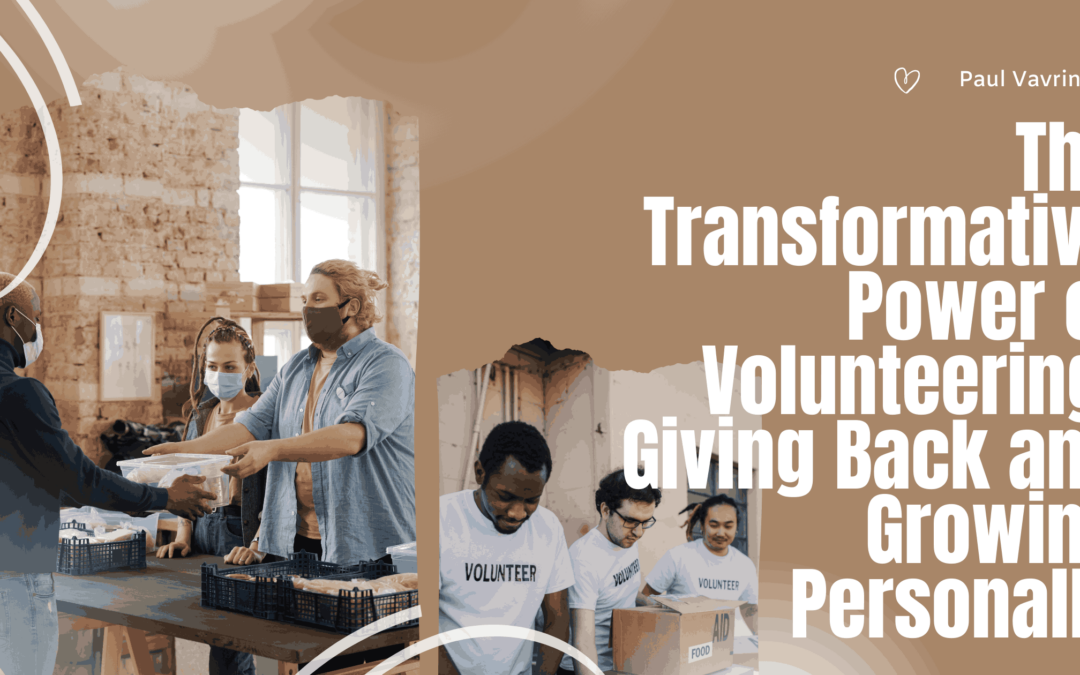Volunteering is more than just giving time; it’s about making a meaningful impact on communities while also enriching one’s own life. Whether it’s helping at a local shelter, participating in environmental cleanups, or mentoring young people, volunteering fosters positive change and personal growth. In this blog, we will explore the many benefits of volunteering, both for communities and for the volunteers themselves, and discuss how to get involved effectively.
The Community Impact of Volunteering
Communities thrive when individuals dedicate their time and skills to helping others. Volunteers often support non-profit organizations, healthcare initiatives, educational programs, and community outreach. Whether it’s distributing food to those in need or tutoring students after school, their efforts address local challenges and improve the quality of life.
One of the most significant community benefits is increased social cohesion. Volunteering brings people from different backgrounds together, fostering collaboration and mutual understanding. In times of crisis, such as natural disasters, volunteers often become essential in organizing relief efforts and offering emotional support to affected individuals.
Moreover, volunteering helps bridge gaps in services, particularly where government resources fall short. Non-profit organizations often rely on volunteers to sustain operations, making their contributions invaluable. From helping the homeless to advocating for environmental causes, volunteers are the heartbeat of many initiatives.
Personal Growth and Well-Being
While communities benefit immensely, volunteers also gain personally from their involvement. One of the most commonly cited advantages is improved mental well-being. Studies have shown that volunteering reduces stress, combats depression, and boosts overall happiness. The sense of purpose derived from helping others fosters a positive outlook on life.
Volunteering also offers opportunities for skill development. Individuals can gain practical experience in areas such as project management, communication, leadership, and problem-solving. These skills not only enhance one’s resume but also build confidence and competence.
Social connections are another major benefit. Meeting like-minded people who share a passion for giving back can lead to lasting friendships and professional networks. The shared goal of making a difference fosters strong bonds and encourages ongoing collaboration.
Types of Volunteering Opportunities
There is no one-size-fits-all approach to volunteering, as opportunities vary widely based on personal interests and community needs. Here are some popular forms of volunteering:
- Community Service: Helping at food banks, shelters, or community events.
- Environmental Volunteering: Participating in tree planting, beach cleanups, or wildlife conservation.
- Educational Mentoring: Tutoring students, teaching adult literacy classes, or offering career guidance.
- Healthcare Support: Assisting in hospitals, hospices, or health awareness campaigns.
- Virtual Volunteering: Providing online tutoring, social media management for charities, or digital advocacy.
By aligning one’s skills and passions with community needs, volunteers can maximize their positive impact while also feeling fulfilled.
Overcoming Barriers to Volunteering
Despite its benefits, some people hesitate to volunteer due to time constraints, lack of awareness, or uncertainty about how to start. To overcome these challenges, it’s helpful to start small—perhaps with a one-time event or a virtual opportunity that fits into your schedule.
Non-profit organizations often provide flexible volunteering options, allowing individuals to choose how often they participate. Additionally, reaching out to local community centers or online platforms can help identify opportunities that match one’s interests and availability.
Another common barrier is feeling unqualified or inexperienced. However, most organizations provide training or pair new volunteers with mentors. Remember, passion and willingness to learn are often more important than expertise.
Making Volunteering Sustainable
For those who want to make a long-term commitment, it’s important to strike a balance between volunteering and other responsibilities. Setting realistic goals and being honest about availability helps prevent burnout. Communicating openly with volunteer coordinators also ensures that expectations are manageable.
Furthermore, documenting your volunteer experiences can be rewarding and motivating. Keeping a journal or sharing stories on social media can inspire others to get involved. Reflecting on your journey also reinforces the positive impact of your efforts.
The Ripple Effect of Giving Back
When one person volunteers, it often inspires others to do the same. This ripple effect strengthens communities by encouraging collective action. Schools, workplaces, and neighborhoods can foster a culture of volunteering by organizing group activities or recognizing volunteers’ contributions publicly.
Volunteering also teaches empathy and resilience, qualities that extend beyond the service itself. As individuals witness the positive changes their efforts bring, they develop a deeper understanding of societal challenges and feel more empowered to continue making a difference.
Volunteering is a powerful tool for personal growth and community improvement. It fosters social connections, hones valuable skills, and promotes mental well-being while addressing real-world issues. By dedicating time and effort to meaningful causes, volunteers not only uplift others but also transform their own lives. Whether you’re just starting out or are a seasoned volunteer, remember that every small act of kindness counts. Get involved, give back, and be part of the positive change our communities need.

